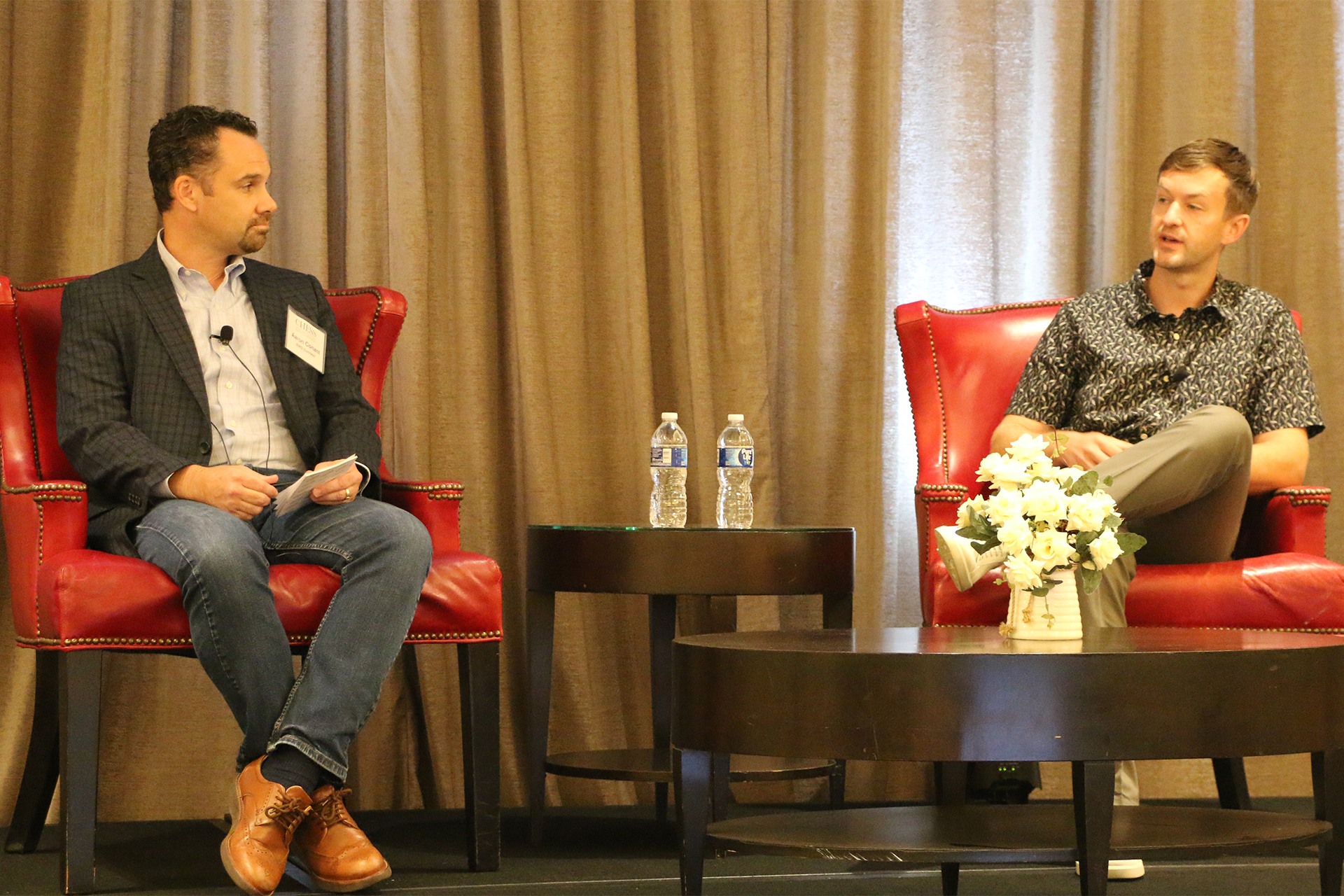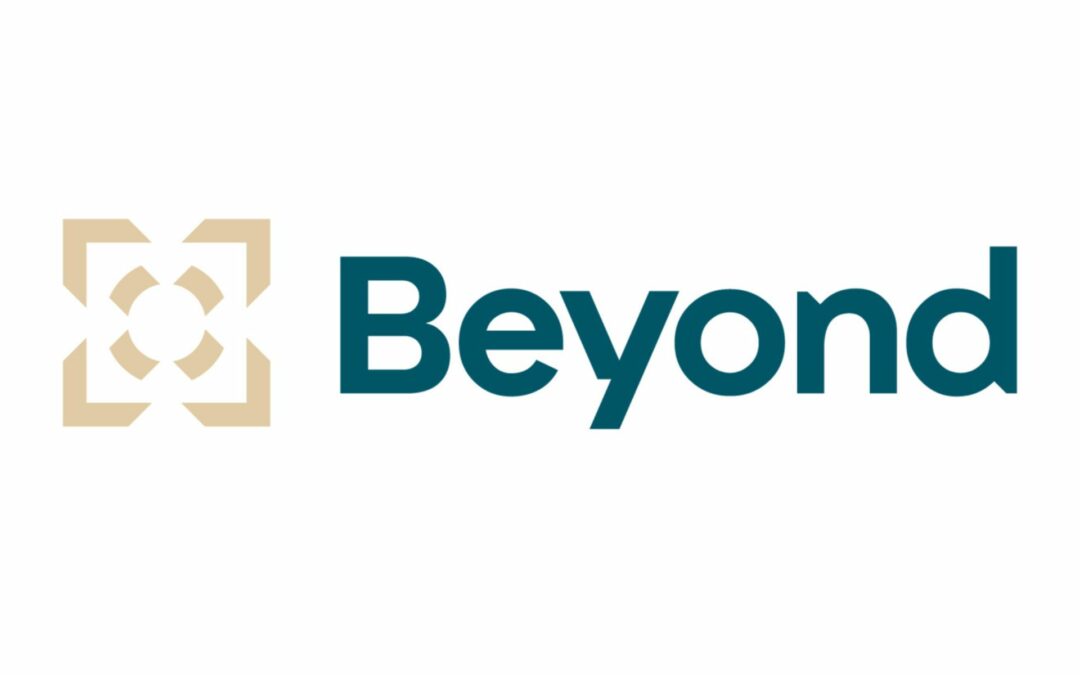The International Housewares Association’s 2023 CHESS (Chief Housewares Executive SuperSession) wrapped up Wednesday with insights into funding strategies in a post-pandemic world, the housewares retail credit climate and artificial intelligence and ChatGPT.
Read a recap of the day-two sessions at CHESS:
Mastering Disruption: Funding Strategies for a Post-Pandemic World
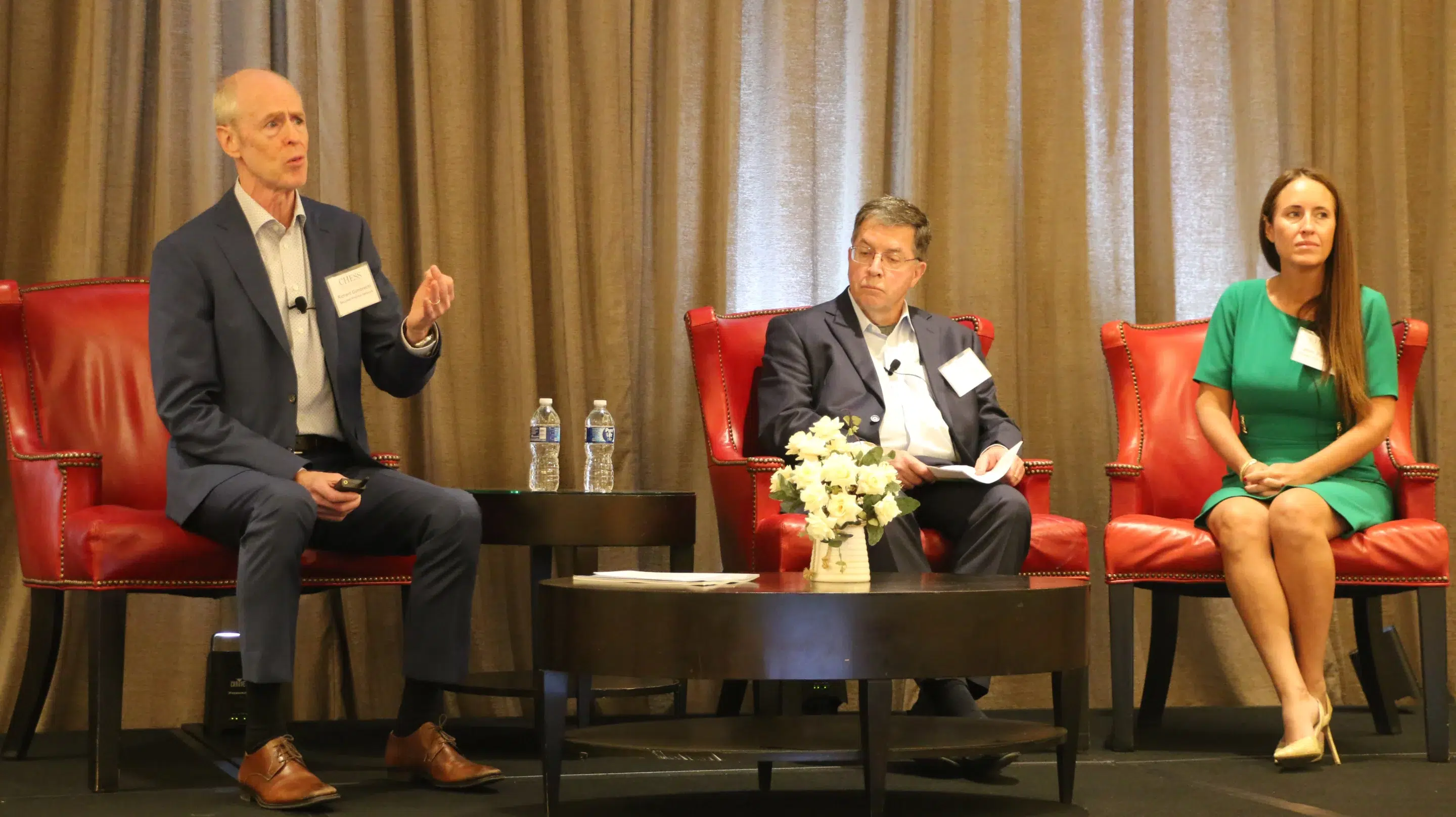
From left: Richard Gumbrecht, Brian Martin, Jenn Palmer
Working capital is the lifeblood of housewares suppliers and a panel lending experts discussed resources to help suppliers secure capital. Richard Gumbrecht of Secured Finance Network, Brian Martin of CIT and Jenn Palmer of JPalmer Collective explained their services and working with lenders can help suppliers.
Throughout the discussion, the panel stressed that it is important for suppliers to develop a relationship with their lender. Researching lenders and learning how much they know about the industry is important. They should know who the players are. Private lenders may be more aware of the industry and who the retailers are, Palmer said. “We know all the players in an industry so if a borrower comes to us and says they have an issue, we will know better how to resolve it,” she said.
Palmer also noted that the next few years will be more challenging and expensive to access capital. Understanding who your partner is will help weather the volatility that will last through 2025, she said. Gumbrecht added that there is a misconception about private banking and concern about bankers’ reputation. Some of the biggest sources of funding come from private credit and there is “a ton of credit that is available to be used,” he said.
Martin of CIT said their clients are ahead of financial issues. They act like they are broke but then don’t end up that way, he said. “Talking with lenders should be an ongoing process,” he added.
“Think of working with a private lender as an insurance policy,” Palmer said. “If something comes up, you’ll get the white glove treatment.”
Grading the Housewares Retail Credit Climate
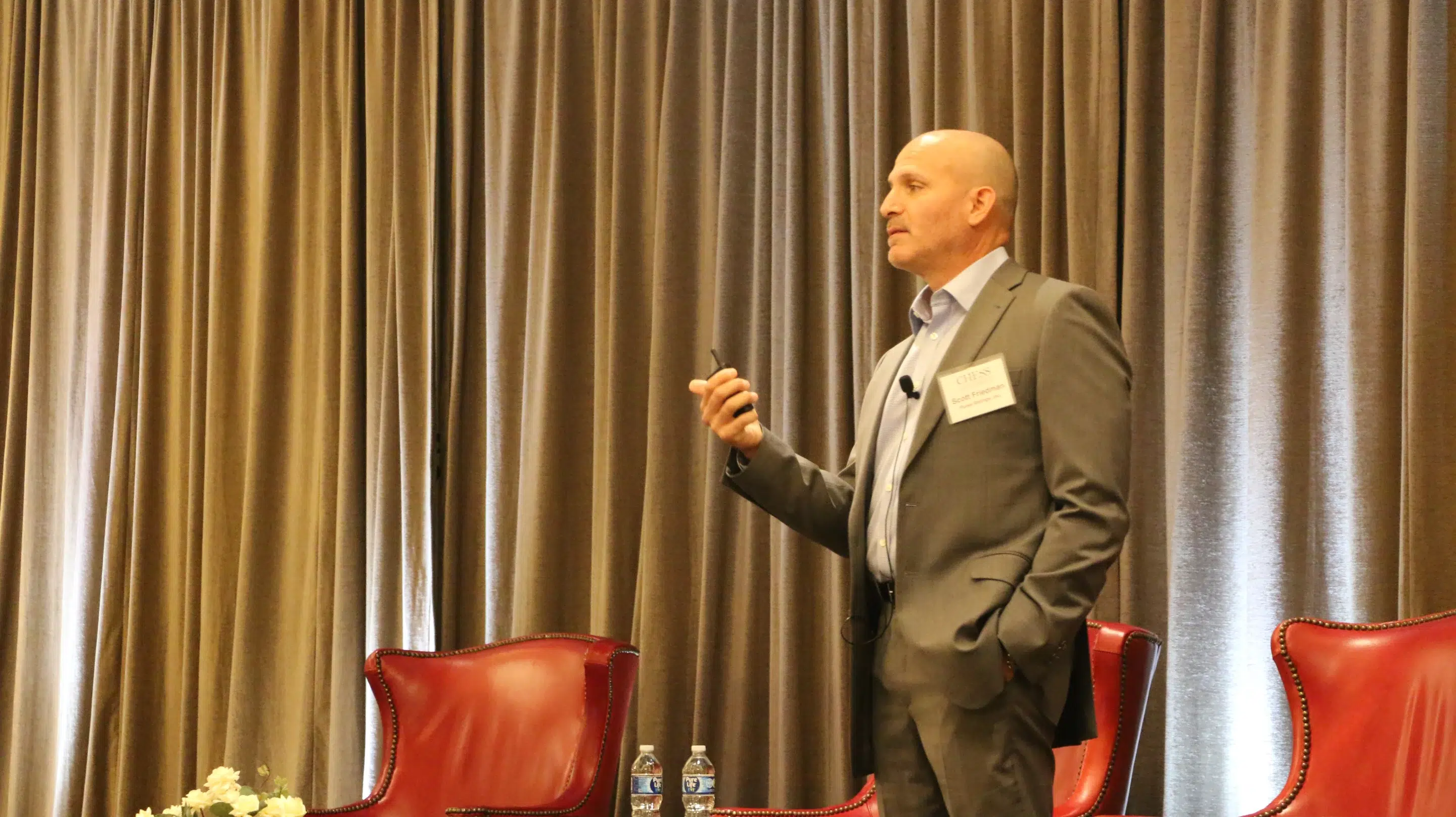
Scott Friedman
Scott Friedman hasn’t seen the housewares retail credit industry as challenged as it has been in the last three years due to COVID, inflation and potential recession. Friedman, chief credit officer at Pulse Ratings, Inc., which also manages IHA’s Housewares Credit Group, discussed the factors affecting the housewares retail credit climate including micro-trends, retail sales, foot traffic trends and distressed retail credit ratings and debt. Debt is a great indicator of a retailer’s strength, he said.
Consumers continue to battle inflation, higher interest rates and higher credit card balances, leaving less available for discretionary spending. U.S. credit card balances total over $1 trillion, part of a total of $17 trillion of consumer debt. With average credit card interest rates now over 20% versus 15% a year ago, the interest rates will likely approach and possibly exceed $70 billion in additional consumer credit card interest expense, further adding to a decrease in consumer discretionary spending, he said.
Retailers are responding to this pressure by emphasizing value, which, when combined with a growing shrink problem, is likely to pressure margins in the second half of the year. Friedman cited mass retail Big Lots who said they “remain in a very challenging environment in which our core lower-income customer remains under significant pressure and has limited capacity for higher-ticket discretionary purchases.”
Friedman also said retailers with private label credit cards are experiencing growing delinquencies, which will result in higher bad debt and also likely pressure second-half sales to those customers. As bankruptcies are on the rise, Friedman gave suppliers a warning about retailers they are selling to; if they say, “We are managing our working capital, it’s a big red flag.”
Artificial Intelligence/ChatGPT: The Opportunity Is Real & Now
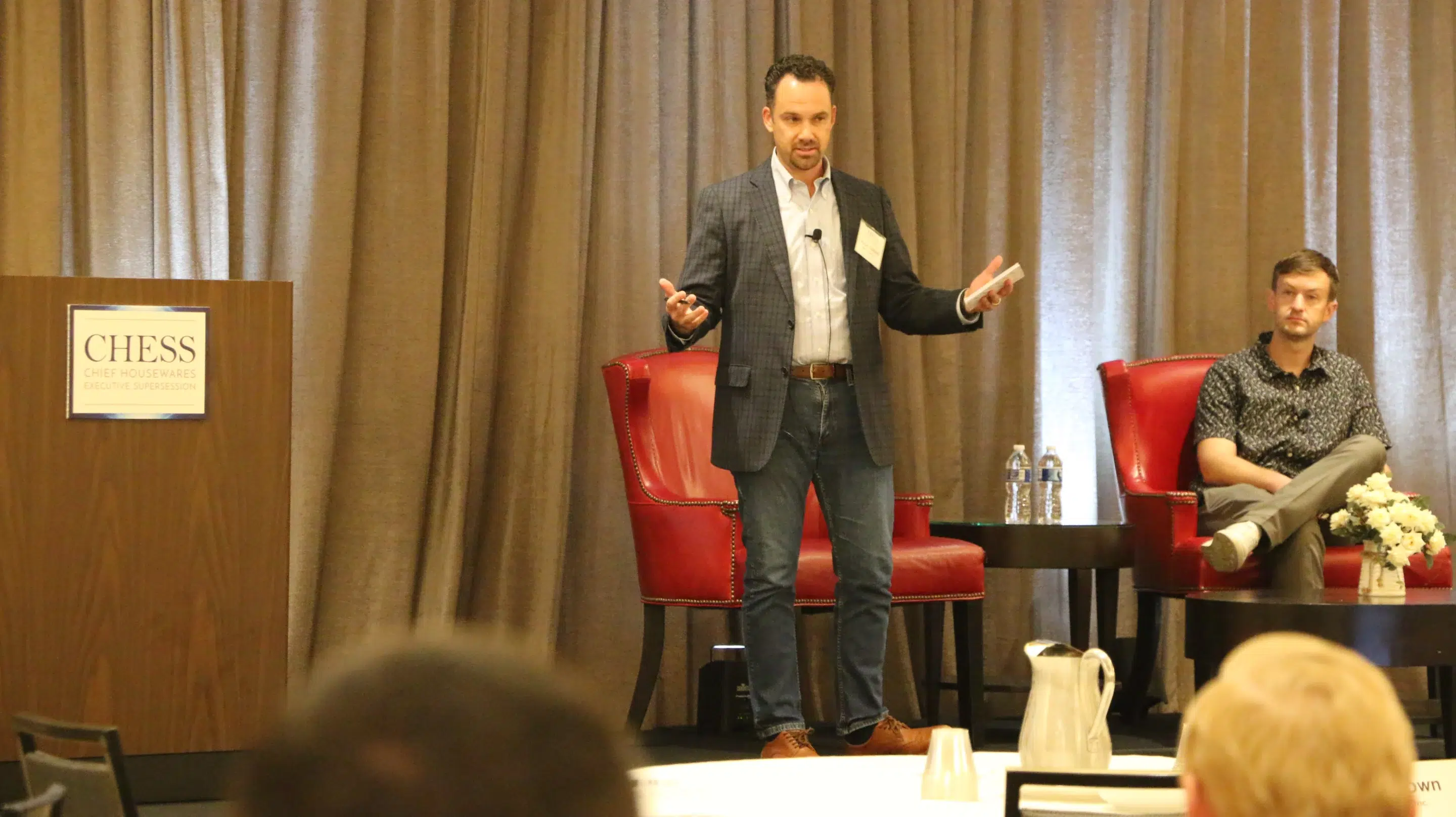
From left: Aaron Conant, Jordan Brannon
During the last session of CHESS 2023, Jordan Brannon, president & COO of Coalition Technologies and Aaron Conant, co-founder and chief digital strategist of BWG Connect discussed the importance and application of artificial intelligence and ChatGPT. These technologies create opportunities for companies to practically integrate AI, using it for data analysis, personalized experiences for their customers, sales and marketing and more.
One of the biggest mistakes Brannon sees when talking to brands is that there is AI fatigue. “People jumped in, the novelty was great and then they walked away from it,” he said, “The reality is it’s changing so quickly — literally on a daily basis.” He stated that it’s important to constantly stay current and think about AI.
Where does a company start? Brannon suggested that anytime a company has a task, especially if it is done digitally, they should see how they can use AI to complete or help complete it. Many CRMs and sales tools already have integrations that can be used, so he suggested looking into software and products the company is already using.
Some types of artificial intelligence include generative AI, using the technology to create or generate something, chatbots like ChatGPT or merging parallel types of AI, using text conversations to create images, video or audio transcriptions.
Companies can use this technology in many ways: AI-generated product descriptions based on goals and specific channels, personalized customer experiences based on the customer’s history and past preferences, A/B product testing using images of product that do not yet exist, forecasting using data or a customized chatbot using your own past conversations with customers. Brannon noted there is a real value in understanding how to get the right outcome from AI, but that requires interaction with it.
The bottom line, Brannon said, is that you can get 80% of the results with 20% of the work. Start using AI, plan where it will be utilized, test on a regular basis and lean on your partners who might already have tools you can use. Transformation can be overwhelming, but if you come together as an organization to talk about it, you can avoid a standstill.

